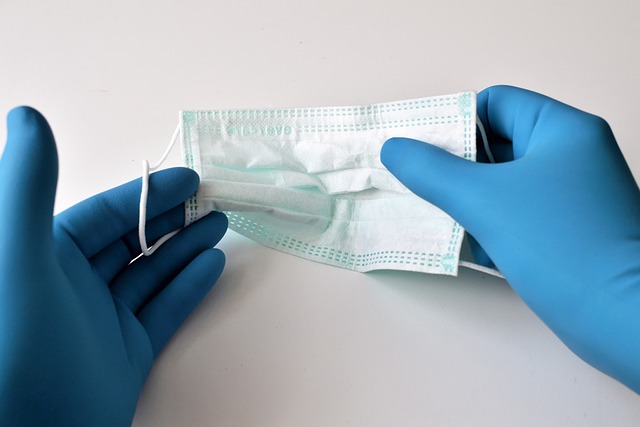The Role of Oral Hygiene in Preventing Respiratory Infections
crickbet99, sky 99 exch id, reddy anna casino:Maintaining good oral hygiene not only keeps your teeth and gums healthy but also plays a crucial role in preventing respiratory infections. The connection between oral health and respiratory health may not be immediately apparent, but research has shown that poor oral hygiene can lead to increased risk of respiratory infections such as pneumonia and bronchitis. In this article, we will explore the importance of oral hygiene in preventing respiratory infections and how you can take care of your oral health to safeguard your overall well-being.
The Link Between Oral Health and Respiratory Infections
The mouth serves as a gateway to the respiratory system, and any harmful bacteria or pathogens present in the oral cavity can easily be inhaled into the lungs. Poor oral hygiene can lead to the buildup of plaque and bacteria in the mouth, increasing the risk of respiratory infections. Studies have shown that individuals with periodontal disease, a severe form of gum disease, are more likely to develop respiratory infections compared to those with healthy gums.
Gum disease is characterized by inflammation and infection of the gums, which can result in the release of inflammatory molecules that can travel through the bloodstream to the lungs. Once in the lungs, these molecules can cause inflammation and increase the risk of infections. Additionally, the bacteria present in the mouth can be aspirated into the lungs, further contributing to respiratory issues. Therefore, maintaining good oral hygiene is essential for reducing the risk of respiratory infections.
How Oral Hygiene Helps Prevent Respiratory Infections
Proper oral hygiene practices, such as brushing and flossing regularly, can help keep harmful bacteria in check and reduce the risk of respiratory infections. Here are some ways in which oral hygiene can help prevent respiratory issues:
1. Removal of Bacteria: Brushing and flossing help remove plaque and bacteria from the teeth and gums, reducing the chances of harmful pathogens being inhaled into the lungs.
2. Reduction of Inflammation: By keeping the gums healthy, you can prevent inflammation and infection that can contribute to respiratory issues.
3. Fresh Breath: Good oral hygiene practices can help prevent bad breath, which is often a sign of oral health issues that can also impact respiratory health.
4. Boosting Immune System: A healthy mouth can contribute to a stronger immune system, which is essential for fighting off infections, including respiratory infections.
5. Regular Dental Check-ups: Visiting your dentist regularly for cleanings and check-ups can help detect any oral health issues early and prevent them from escalating into more serious problems that can affect your respiratory health.
Tips for Maintaining Good Oral Hygiene
To protect your respiratory health and overall well-being, it is important to prioritize good oral hygiene practices. Here are some tips to help you maintain a healthy mouth:
1. Brush your teeth at least twice a day with a fluoride toothpaste.
2. Floss daily to remove plaque and food particles from between your teeth.
3. Use an antimicrobial mouthwash to kill bacteria and freshen your breath.
4. Avoid tobacco products, as smoking and chewing tobacco can have detrimental effects on your oral and respiratory health.
5. Stay hydrated by drinking plenty of water, which helps keep your mouth moist and washes away bacteria.
6. Eat a balanced diet rich in fruits and vegetables to provide essential nutrients for a healthy mouth and immune system.
7. Replace your toothbrush every 3-4 months or sooner if the bristles become frayed.
8. Limit consumption of sugary and acidic foods and beverages, which can contribute to tooth decay and gum disease.
By following these tips and maintaining good oral hygiene practices, you can reduce the risk of respiratory infections and protect your overall health.
FAQs
Q: Can poor oral hygiene really lead to respiratory infections?
A: Yes, studies have shown that individuals with gum disease are at a higher risk of developing respiratory infections due to the presence of harmful bacteria in the mouth.
Q: How often should I visit the dentist for check-ups?
A: It is recommended to visit your dentist at least twice a year for cleanings and check-ups to maintain good oral health and prevent potential issues.
Q: Are there any specific mouthwashes that are better for preventing respiratory infections?
A: Antimicrobial mouthwashes containing ingredients such as chlorhexidine or essential oils can help kill bacteria and reduce the risk of respiratory infections.
In conclusion, oral hygiene plays a vital role in preventing respiratory infections by keeping harmful bacteria in check and maintaining a healthy mouth. By prioritizing good oral hygiene practices and visiting your dentist regularly, you can safeguard your respiratory health and overall well-being. Remember, a healthy mouth leads to a healthy body!







